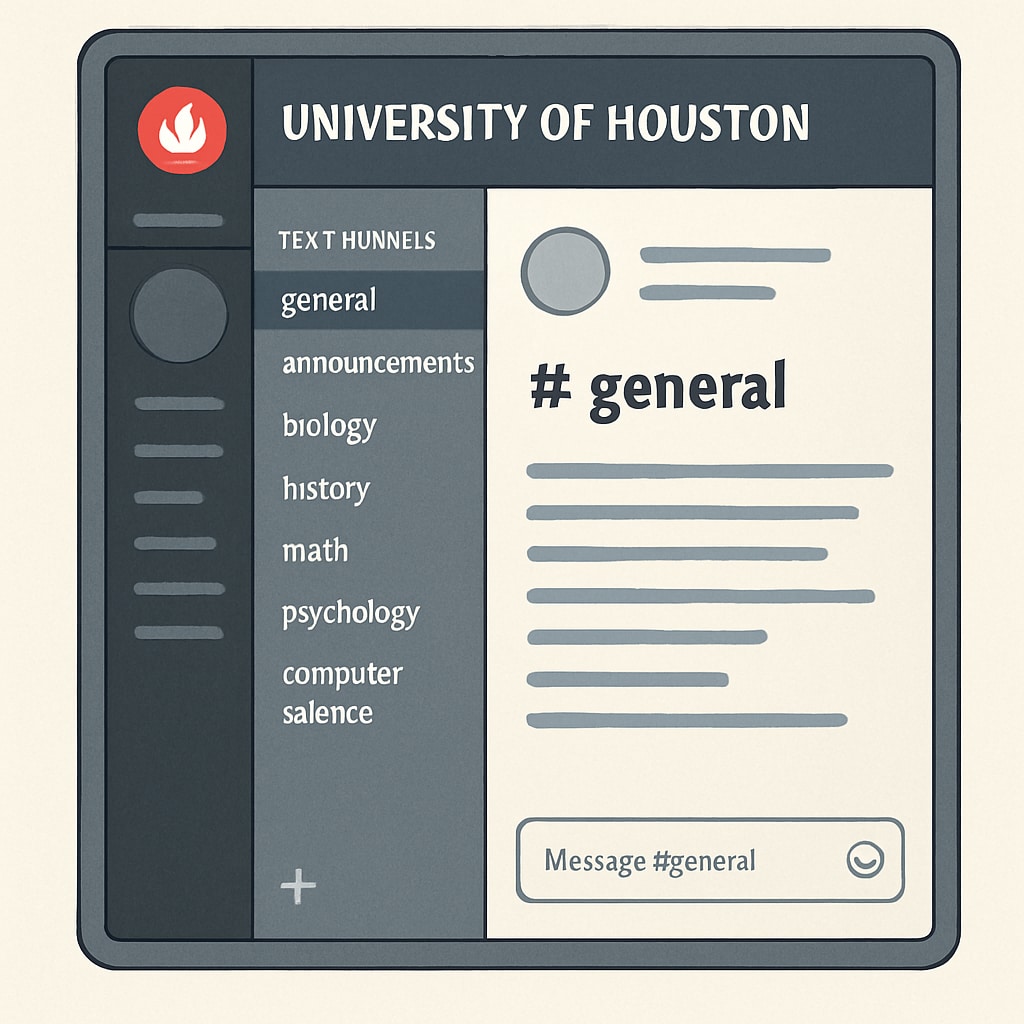In today’s competitive academic environment, finding and engaging with study groups has become essential for students striving to achieve their academic goals. At the University of Houston, resources such as study groups, Discord communities, and campus organizations can help you build a network of like-minded learners. These communities not only enhance academic performance but also foster collaboration, communication, and resilience—skills that remain valuable beyond the classroom.
Why Join a Study Group at the University of Houston?
Joining a study group can significantly improve your learning experience. Collaborative environments allow students to share diverse perspectives, clarify complex concepts, and stay accountable to their academic goals. At the University of Houston, study groups are commonly organized within individual courses, student organizations, and even virtual platforms such as Discord.
For example, many students use Discord servers to create flexible and accessible virtual study spaces. These servers often include dedicated channels for specific topics, real-time discussions, and opportunities to ask questions outside of class hours. Whether you’re preparing for exams or working on group projects, study groups provide a supportive environment where you can thrive.

How to Find Study Groups and Discord Communities
If you’re new to the University of Houston or unfamiliar with the concept of virtual study groups, finding the right community might seem overwhelming. Here are some practical tips to get started:
- Class Announcements: Professors and teaching assistants often encourage students to form study groups. Pay attention to class announcements or emails about group opportunities.
- Campus Organizations: The university hosts numerous academic and professional organizations where students can connect with peers in their field of study.
- Discord Communities: Many courses have unofficial Discord servers created by students. Check course forums or ask classmates if any exist for your class.
- Social Media: Platforms like Facebook or LinkedIn often have groups dedicated to University of Houston students, where you can find study partners.
By exploring these resources, you can find a study group that aligns with your learning style and academic goals.

Applying Collaborative Learning Principles to K12 Education
The benefits of study groups and collaborative learning extend beyond higher education. These principles can also be applied to K12 education to help young learners develop essential skills. For instance, K12 educators can create virtual or in-person study groups to encourage teamwork and peer-to-peer learning. Platforms like Discord, used effectively at the University of Houston, can also be adapted for younger students under proper supervision.
Here are some ways to integrate collaborative learning into K12 education:
- Group Projects: Assign tasks that require students to work together, promoting communication and problem-solving skills.
- Peer Tutoring: Pair students with varying strengths to help each other with challenging subjects.
- Virtual Communities: Use moderated platforms to create safe virtual spaces for discussions and collaborative activities.
By fostering these habits early on, students can transition smoothly into more advanced collaborative learning environments, like those at the University of Houston.
Conclusion
Building a strong learning community is a pivotal step toward academic success. At the University of Houston, study groups, Discord communities, and campus organizations offer ample opportunities to connect with peers and enhance your educational journey. Whether you’re a university student or an educator looking to implement collaborative strategies in K12 settings, cultivating a culture of teamwork and resilience will pay dividends in both academic and personal growth. Start exploring these resources today and unlock your potential through the power of community.
Learn more about study groups on Wikipedia and collaborative learning on Britannica.
Readability guidance: This article balances accessible language with professional insights. Short paragraphs, lists, and transitions ensure readability, while external links and examples add depth. Images provide visual context for the discussed resources.


